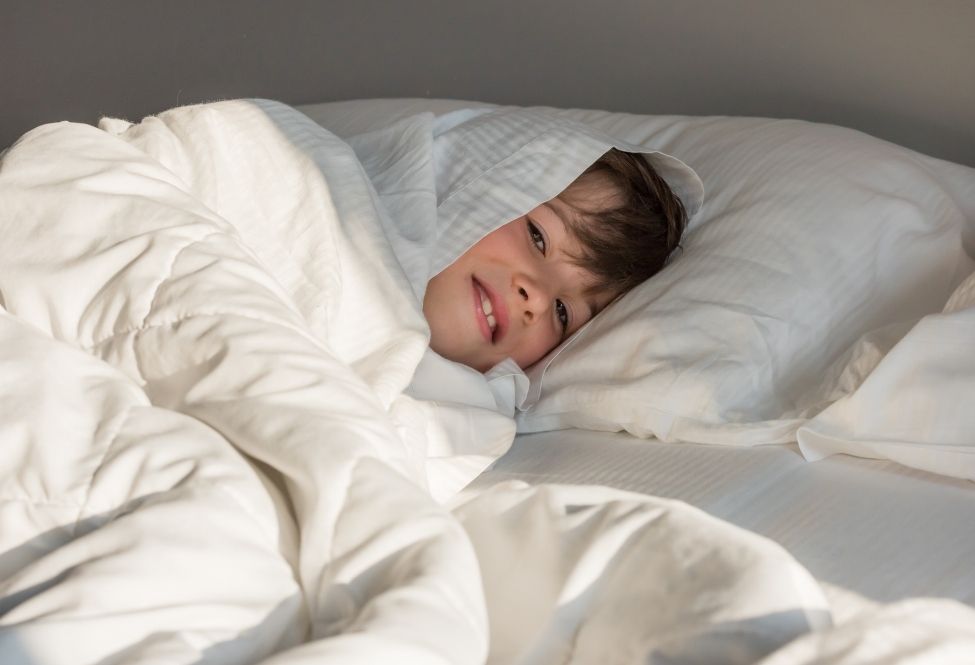For children, the night has two major drawbacks: it is dark and forces them to be separated from their parents for long hours. The ordeal is even more complicated if their sleep is disturbed by nightmares or terrors that are often just as frightening for the young sleeper as for the rest of their family, who are alerted by their screams.
During early childhood, bad dreams are not rare. In general, they fade away after the oedipal phase, at around 5 years of age, and return more episodically at around 10 years of age. These nightmares are necessary. It is through them that children evacuate their emotions, fears, and all the feelings that trouble them. Most often they occur during REM sleep, at the end of the night. When your child wakes up from this frightening dream, he or she is terrified and still very much in the grip of the images that have upset him or her. Lost and distraught, he calls you and really needs to be reassured so he can go back to sleep.
To calm him effectively, explain that he had a nightmare and that nothing he saw or experienced in this bad dream is true. He can go back to bed quietly: you are there and you are watching over him. Run your hand through his hair but, if possible, avoid turning on the light or cuddling him. This will ‘break’ his night and make it even harder for him to get back to his night’s work. Cuddling is best done if your little one is so upset that he can’t calm down. But if he wants to tell you about his dream, try to convince him to wait until the next day to do so and tell him that it’s time to go back to sleep… for him and for you! If you find that the nightmares are coming back frequently, ask when he wakes up at night… and ask him. Try to get him to talk about his fears, anxieties, and feelings. Something is weighing on him and confiding in him will probably help him.
Unlike nightmares, night terrors occur during deep sleep, at the beginning of the night. Your child seems panicked, screams is agitated, sometimes sits up in bed. And yet… he is sleeping. Even if you are impressed, do not intervene. He should calm down quickly. These fits often occur in sleep-deprived children. Try to extend his naps or put him to bed earlier. It is also possible that a personal problem is causing these fears. In any case, do not allow your child to come to your bed. If he had this habit when he was a baby, he must lose it, especially if he is going through the oedipal period. He must learn to stay in his room, must tame it to feel good, protected there. Your bed is not for him, it is your intimacy that he does not have to share. If he slips in during the night, take him back to his room immediately.
Don’t let these nightmares and fears take hold! Talk to your child, play with him/her so that he/she expresses what is preventing him/her from sleeping peacefully. And if you can’t find the cause, don’t hesitate to consult a specialist, a pediatrician, or a psychologist.











0 Comments